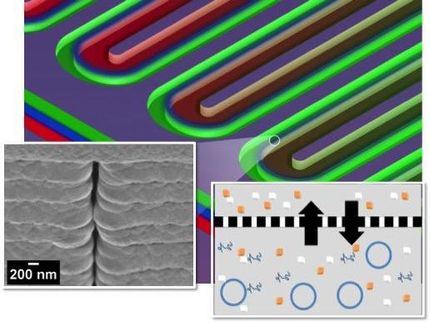Dow and greenovation will collaborate on glycosylation research for transgenic plant systems
Advertisement
San Diego/Freiburg - The Dow Chemical Company and greenovation Biotech will collaborate in research to develop fully mammalian-like plant Glycosylation patterns, the companies announced.
Many high-value therapeutic proteins must contain specific glycan or sugar structures to be fully effective and work safely in the human body. Glycoproteins produced by plants have structures which are similar but not identical to those produced by mammalian systems. A primary goal of the companies is to enable production of therapeutic antibodies in a moss system that are fully comparable to those produced in mammalian cell systems, and thereby advance the utility of plant-based production for biopharmaceuticals.
Under the agreement, greenovation will license selected Dow intellectual property covering certain modifications of glycosylation patterns in plants, and Dow will receive greenovation's data on its progress of such work in moss. No financial details are being released. Research will focus on optimizing galactosylation, the major step for achieving mammalian-like glycosylation for monoclonal antibodies. greenovation's successful double-knock-out of plant-specific sugar residues in moss will be the basis for the investigation.
"We are pleased to provide greenovation this license for work with their novel, moss-based closed expression system," said Dow's Carolyn Fritz, Global Business Director, Industrial Biotechnology. "Combining our technologies can help advance the effectiveness of plant-based production. This agreement reflects Dow's expanding range of work in multiple production systems that can offer value to pharmaceutical companies that need to produce therapeutic proteins for feasibility studies, clinical supply and full commercialization."
For greenovation Biotech, work with galactosylation is the next logical step after their successful knock-out of plant-specific glycosylation, according to Dr. Sabrina Wagner, greenovation CEO. "Dow's know-how and experience in modifying plant glycosylation patterns ideally complements our own work in this field," she said. "The collaboration allows us to proceed quickly with the development in our moss system."
Glycosylation Technologies
greenovation's moss bioreactor is a major innovation in the manufacture of biopharmaceuticals, combining the safety and cost advantages of plant-based systems with the advantages of a system that is closed to the environment. greenovation developed the bioreactor based on the fermentation of moss protonema, a green multicellular filament. In 2002, Dow acquired key patents in glycosylation and began collaborating with Plant Research International B.V. of Wageningen, The Netherlands, to speed development of therapeutic proteins with mammalian-like glycan structures in transgenic plants. Part of Dow's role in that collaboration is to lead commercialization of the resulting exclusive technology for the therapeutic protein contract manufacturing market.
Other news from the department science
Most read news
More news from our other portals
See the theme worlds for related content
Topic world Antibodies
Antibodies are specialized molecules of our immune system that can specifically recognize and neutralize pathogens or foreign substances. Antibody research in biotech and pharma has recognized this natural defense potential and is working intensively to make it therapeutically useful. From monoclonal antibodies used against cancer or autoimmune diseases to antibody-drug conjugates that specifically transport drugs to disease cells - the possibilities are enormous

Topic world Antibodies
Antibodies are specialized molecules of our immune system that can specifically recognize and neutralize pathogens or foreign substances. Antibody research in biotech and pharma has recognized this natural defense potential and is working intensively to make it therapeutically useful. From monoclonal antibodies used against cancer or autoimmune diseases to antibody-drug conjugates that specifically transport drugs to disease cells - the possibilities are enormous
























































